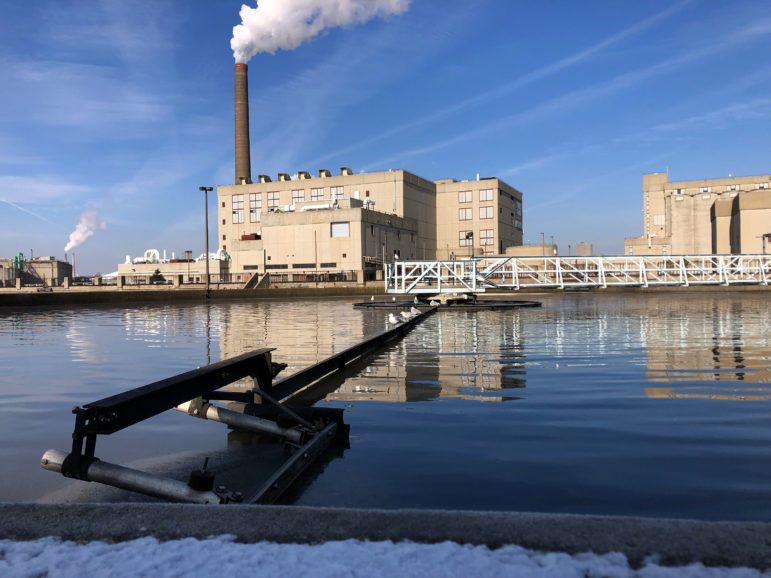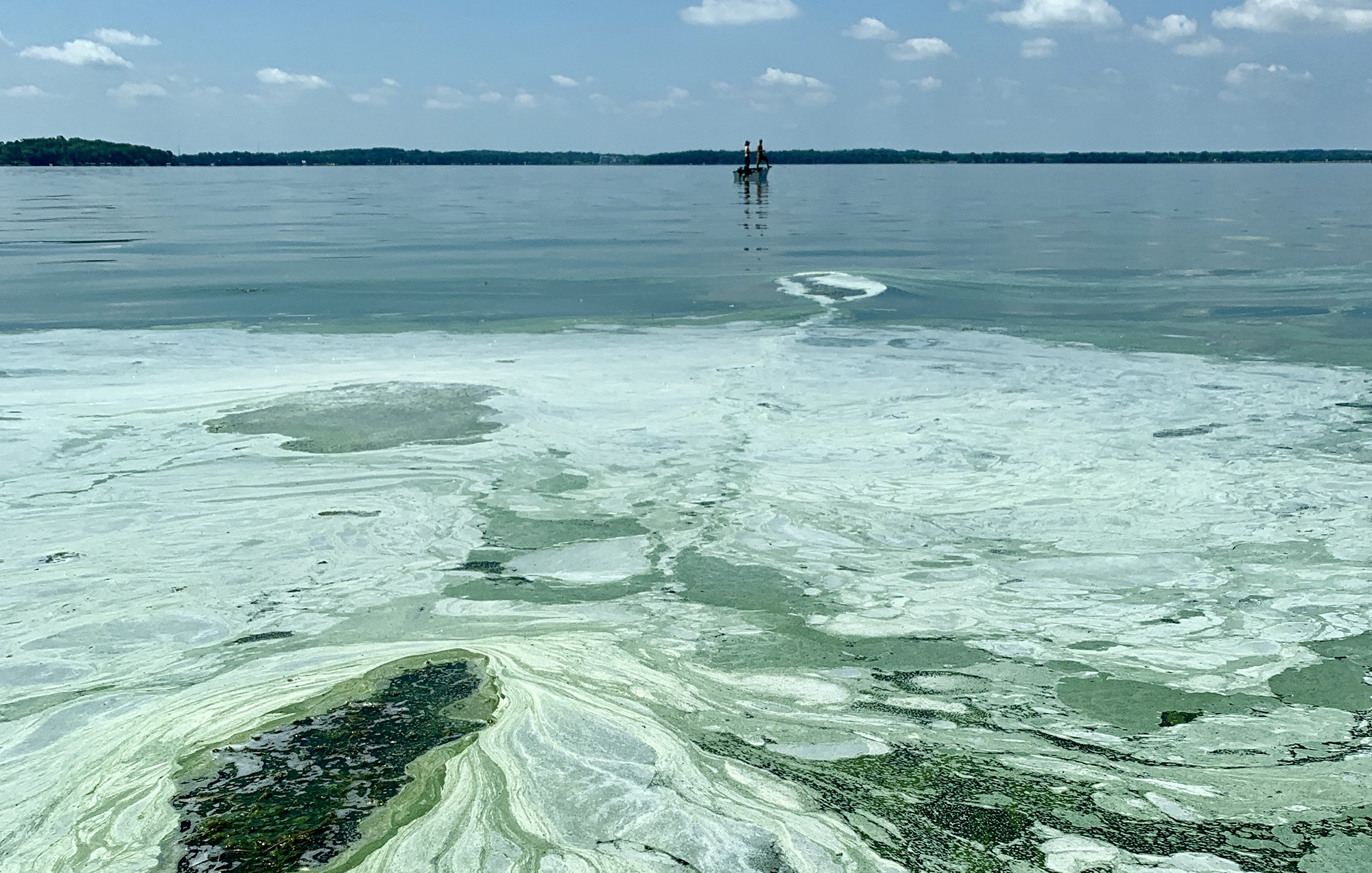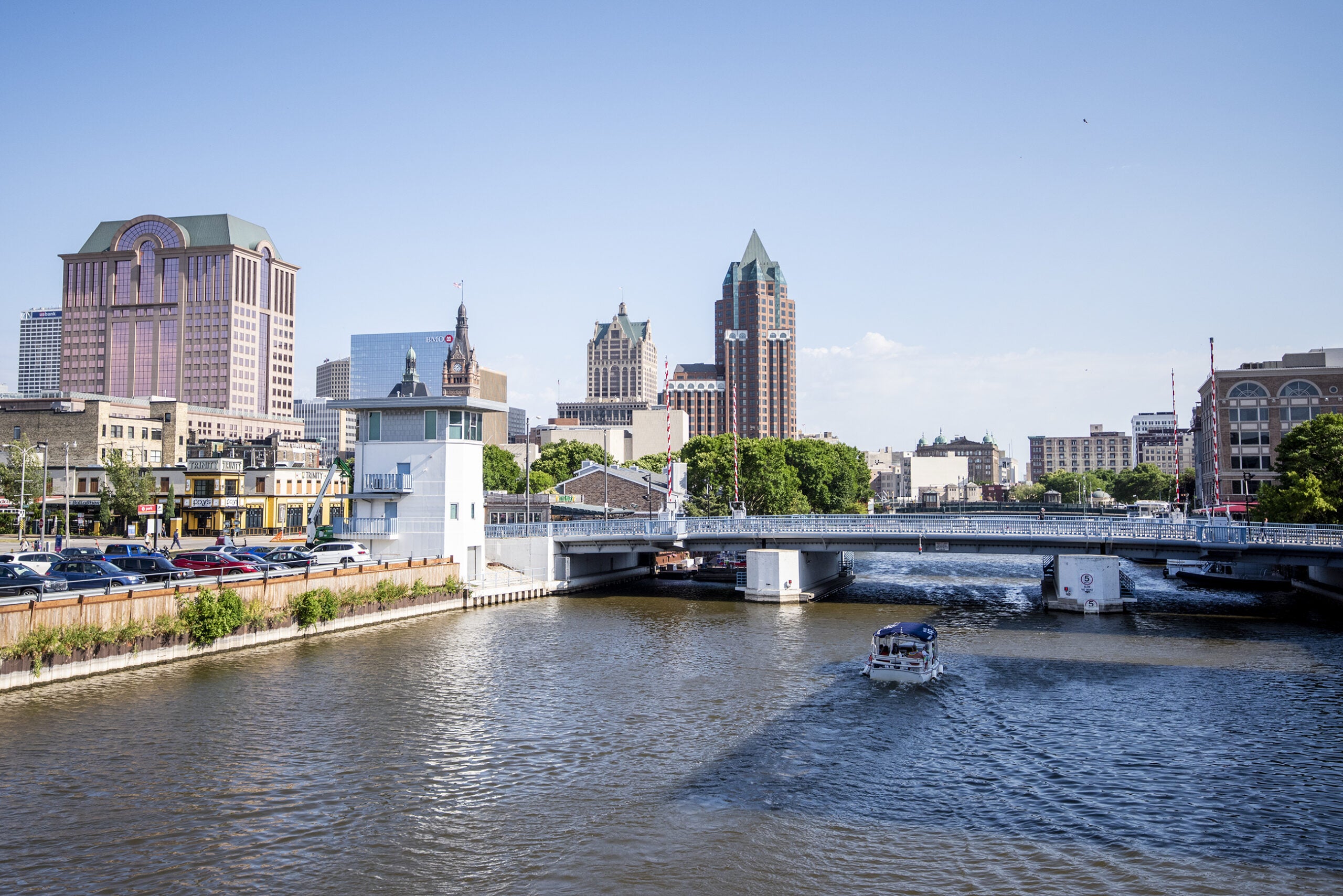Gov. Scott Walker has signed a bill delineating part the shoreline of Lake Michigan in order to clarify development rights, but a parks group says the measure violates a constitutional provision that protects waterways for public use. The law could wind up in court.
The bill would help a private developer who wants to build what could be the tallest building in the state, about a quarter mile west of the waters of Lake Michigan, in Milwaukee. The measure defines the Milwaukee shoreline and lakebed boundary, based on a 1913 agreement between Milwaukee and the Chicago and Northwestern Railroad.
As he stood between a major Milwaukee street and the lake, Walker said the definition would help the measure withstand an expected court challenge.
Stay informed on the latest news
Sign up for WPR’s email newsletter.
“The public understands, for all practical purposes, this is where the lake front is, is where we’re standing on the east side of Lincoln Memorial Drive,” Walker said. “I think it affirms where the public, I believe, believes things are, and that is: west of Lincoln Memorial Drive, in this general vicinity, is area [that’s] reasonable to be developed.”
If Milwaukee County turns over the land to the developer, however, the non-profit group Preserve Our Parks says it will take issue before a judge.
Preserve Our Parks board member Charlie Kamps says the state constitution’s public trust doctrine provides that the waters of the state and filled in lakebeds must be devoted to public use. Kamps says if preservationists lose in Milwaukee, they could lose elsewhere, too.
“If the Legislature can decide that something is not lakebed,” Kamps said, “then the next thing they can do is decide that a waterway is not navigable, and thereby convert what is a public right of way into something that can be exploited for private purpose.”
Kamps says the waterways debate could extend all the way to the proposed iron ore mine in northern Wisconsin.
Wisconsin Public Radio, © Copyright 2024, Board of Regents of the University of Wisconsin System and Wisconsin Educational Communications Board.





